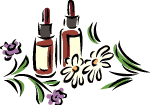 Q. You have been an athlete in competitive sports, so you have some experience with serious athletic competition. Do you have any suggestions on nutrition for people participating in athletics and competitive sports?
Q. You have been an athlete in competitive sports, so you have some experience with serious athletic competition. Do you have any suggestions on nutrition for people participating in athletics and competitive sports?
A. Health and nutrition for extreme athletes and competitive sports is a completely different realm of nutrition. It is like working with an advanced machine. Competition is tough and so much more is expected today than in the past to achieve scholarships and offers to join the pros.
Even if you aren’t at this level, though, a person who is exercising still has the same basic needs, such as staying hydrated (adequate water intake) and getting enough sleep. When these needs aren’t being met, then you aren’t going to function at peak performance.
Despite all of the advertising for energy and sports drinks, water is still the best beverage for athletes. Cellular function becomes compromised without adequate water. There are sugars and bromide in “sports” drinks that can hinder peak cell performance and make cells work harder over the long haul.
Researchers studied the effects of fluid replacement and carbohydrate consumption during 50 minutes of hard exercise, followed by a 10-minute sprint. When the athletes drank a large volume of water (48 ounces, the amount needed to offset dehydration), they sprinted 6% faster compared to when they drank only seven ounces of water. By adding minerals to the water and replacing electrolytes, performance can improve even more. A great alternative to “sports drinks” is NSP’s Recovery Drink.
Long hours of training and competition stress will tax the adrenals so it is essential to pay close attention to cortisol levels. Studies with athletes have confirmed that high carbohydrate diets (70-80% of energy from carbs), with carbohydrate ingestion before, during, and after exercise, help maintain blood sugar levels. This consequently offsets the rise in circulating cortisol and the associated decrease in immune function frequently associated with strenuous exercise.
A motion analysis of elite ice hockey teams showed the players with a high-carbohydrate (60%) diet skated not only 30% further, but also faster than the players who ate a low-carbohydrate (40%) diet. Good carb choices include fresh fruit and whole unrefined grains.
It is important to pay attention to what you eat before a competition. You should minimize fat and protein intake because it takes longer to digest. High protein (steak and eggs for example) before competition can hinder performance. Eating a lot of protein for a pre-competition meal causes dehydration because the by-product of amino acid breakdown requires water for urinary excretion.
On the other hand, carbohydrates digest much faster than fats and proteins. This makes them perfect for a pre-competition meal, even though they still take at least three hours to fully digest and absorb.
Q. What Nature’s Sunshine Products would you consider valuable for athletics and sports?
A. Nutritional supplementation is a “must” today in sports. In the past, we were consuming purer foods. We didn’t have to worry so much about xenoestrogens, pesticides or harmful chemicals in foods. And, meat wasn’t laden with growth hormones or antibiotics.
Adrenal Support and a good B-Complex supplement are important. Because there is oxidative stress when you are vigorously working out, antioxidants are also a must. Thai-Go is not only a great antioxidant supplement, but also acts as a refrigerant. This means it cools down the body and keeps it from overheating, especially when working out or playing in warm weather. The wolfberry (lycium) in Thai-Go is a great source of vitamin C, which helps with tissue repair.
Energ-V is a good supplement for athletes. It helps the adrenals and aids mental clarity without creating the “buzz” of an energy drink that will let you down hard in a few hours.
Target Endurance replaces electrolytes. It has copper to direct energy to the cells, which keeps the nerves firing like they are supposed to. It also improves stamina in muscle work.
One study shows that prolonged high intensity exercise can compromise immune function. This compromised immunity might explain why the risk of respiratory infections is high in athletes. Cordyceps works well with building the immune system, supporting lung function and aiding adrenal function. It was used in China by Olympic athletes to improve stamina. Taking Trigger Immune periodically can also help here. THIM-J is also a good choice for rebuilding the immune system in athletes. Probiotics can help keep good intestinal balance and boost the immune system.
When you are breaking down and rebuilding muscle, you will get an inflammatory response. This makes IF Relief a must in any rigorous exercise program. It helps with pain, reduces oxidation and aids cellular repair.
Everflex with Hyaluronic Acid helps to keep tissue supple and flexible in the joint area. It also helps the liver with transporting and delivering nutrients.
By taking a protein drink, you help your body build up the muscle tissue that you are tearing down when you exercise. Unfortunately, most protein drinks contain aspartame, which will eat the lining off the myelin sheath of the nerves. A pure protein source like NutriBurn can help. Adding Ultimate GreenZone will provide protein, too, and will also help reduce acid build-up in the muscles, which can take you to a whole new level. I also like to use Chlorophyll capsules for reducing acid waste in the muscles and improving oxygenation to the tissues. Mixing the protein powder, GreenZone and Thai-Go together with some fresh fruit and ice in a blender creates a nice smoothie.
For the additional amino acids (the building blocks of protein), I like to use Super Algae. It not only provides amino acids, but also converts to fuel easily and will help alkalize the body. It will support your energy, as well. RG-Max is another great source of amino acids.
Combination Potassium is a good support supplement, too. It helps muscles and will move toxins out of the cells. Cramp Relief is a good formula for those prone to muscle spasms.
Minerals are important energy conductors for exercise. I use Mineral Chi tonic or Target Endurance.
Glutamine is an amino acid used by the cells of the immune system as an energy source. After prolonged exercise, circulating levels of glutamine are low. On the strength of these two facts, glutamine is often touted as an immune system booster. N-Actyl-Cysteine is a precursor to l-glutamine conversion.
Q. Your daughter has also competed in gymnastics and other sports. Do you have any tips for parents whose children are in sports?
A. Children should be in sports because they want to be and because they derive pleasure or satisfaction from it. That isn’t to say we shouldn’t support or “nudge” them, once in a while. There are days they need some outside motivation, but if they are pressured so much to achieve that their stress level becomes too great, their health is going to suffer. So, make sure they have a good mental attitude about what they do.
If they are in puberty and having some hormonal issues with things, then NutriCalm and Master Gland work great together here for those “attitude” adjustments. It is in our own interest to help them so everyone’s stress levels are semi-normal.
Q. What supplements would you recommend parents of young athletes give their children?
A. To start with they need a bioavailable protein either in natural sources or in a protein drink. Having a fast food hamburger every day isn’t going to give them the protein they need for peak performance. If they are prone to digestive upset with a protein drink, then just try Free Amino Acids or Super Algae instead. It will take stress off the digestive system.
Minerals are a must. The body can’t run without them.
They also need fuel for the adrenals. Adaptamax is a good formula for young athletes.
I would also recommend Target Endurance for two reasons. One, it improve energy production in the cells providing overall improved energy. And two, it helps cells efficiently flush toxins out.
Getting green foods into young people is challenging, but they need them. Super Algae helps here.
If they are doing a lot of exercise and working out, then whole grains will help with some of the fuel sources. These are much better than sugary foods. Simple sugars will just create a bad environment for cells.
A lot of athletes (especially girls) will skip meals in hopes of remaining thin. Many of these athletes struggle to attain thinness and may develop eating disorders due to it. Among women, this restrictive eating commonly results in loss of regular menstrual periods (amenorrhea) with the high price of stress fractures and osteoporosis. Athletes need to eat regularly to perform well and stay healthy.
Eating too many fatty foods like butter, oil, cream, mayonnaise, fried foods-—fat in any form —displaces carbohydrates and is detrimental to glycogen replacement. Consequently, it can hurt performance. This doesn’t mean you should eat a fat-free diet. Balance a moderate amount of fat (25% of calories, or about 60-90 grams for many active people) into a foundation of carbohydrate-rich foods. Omega-3 can be taken to help with inflammation, as well.
With sports injuries especially in repetitive sports or sports that don’t really have seasons and go all year round like gymnastics and cheer leading the risk for injury is increased. We require all of this protective gear for the outside of our body what are we doing for the inside to protect the cells.

